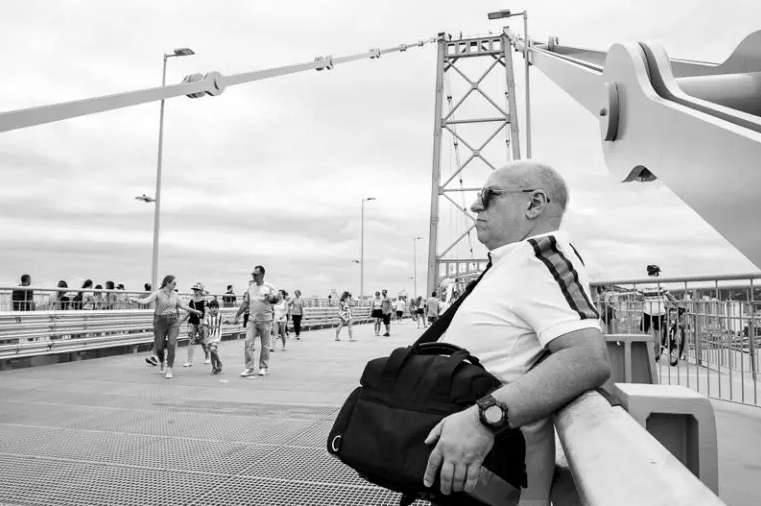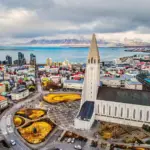What is the interdict
Interdiction is a legal process aimed at protecting people who, for some reason, lack the full capacity to exercise their rights and make decisions for themselves. Interdiction is a protective measure that seeks to ensure that the interdicted person is assisted and represented by someone who will protect their interests and well-being.
Legal definition
Interdiction is provided for in the Brazilian Civil Code, more specifically in articles 1,767 to 1,783. According to the law, interdiction can be requested when a person is considered incapable of personally performing acts of civil life, whether due to illness, mental disability, drug addiction, or any other cause that compromises their ability to discern.
Who can be considered interdicted?
Anyone with a mental, intellectual, or physical disability, or who is in a compromised mental health condition, may be considered interdicted. It is important to emphasize that interdiction is not a punishment, but rather a protective measure to ensure that the interdicted person receives the necessary care.
Interdiction process
The interdiction process is initiated by a close family member or the Public Prosecutor's Office, which must prove the person's incapacity. Medical documents, psychological reports, and other evidence demonstrating the need for the interdiction are required. After analyzing the evidence, the judge decides whether the interdiction is necessary and appoints a guardian to represent the interdicted person.

Interdiction is a serious and delicate process, as it involves restricting a person's rights. Therefore, it is essential that all steps are followed in accordance with the law to ensure the protection and well-being of the interdicted person.
Requirements for traveling alone
When it comes to traveling alone, there are some requirements that must be considered to ensure the traveler's safety and well-being. It's important to be aware of the legal procedures and necessary precautions before embarking on a solo adventure. In this section, we'll cover the main requirements that must be met when traveling alone. traveling alone.
Full civil capacity
Full civil capacity is an essential requirement for traveling aloneThis means that the individual must have full legal capacity to perform acts of civil life, such as signing contracts, making financial decisions, and being accountable for their actions. Full civil capacity ensures that the traveler has sufficient autonomy and responsibility to make decisions and deal with situations that may arise during the trip.
Medical evaluation
Before traveling alone, it is recommended to undergo a medical evaluation to ensure the person is in good physical and mental health. This evaluation can be performed by the traveler's trusted physician and typically involves routine exams, physical and mental health checks, and updating the traveler on recommended vaccinations for the destination. This precautionary measure helps prevent health complications during the trip and allows the traveler to be prepared for any eventuality.
Judicial authorization
In some cases, it is necessary to obtain judicial authorization to traveling aloneThis usually occurs when the person is a minor or when there is some type of legal restriction that requires a judge's permission for the traveler to depart. Judicial authorization can be obtained through a legal process, in which documents and justifications must be presented to the responsible judge. It is important to check local laws and regulations to determine if judicial authorization is required before leaving. traveling alone.
Ensure that legal and regulatory requirements are met. health requirements are met is essential for traveling alone with safety and peace of mind. When planning a solo travel, it is recommended to research the laws and regulations of your desired destination, as well as consult specialized professionals, such as lawyers and doctors, for specific guidance on the necessary requirements. This way, traveler will be prepared to make the most of their solo adventure, with the peace of mind that you are meeting all legal and health requirements.
Precautions when traveling alone
When deciding traveling alone, it's important to take some precautions to ensure your safety and peace of mind during your journey. In this section, we'll cover three key aspects: informing family and friends, carrying important documents, and having access to communication resources.
Inform family and friends
Before embarking on a solo travel, it's essential to inform family and friends about your itinerary. Provide details about the destinations you plan to visit, arrival and departure dates, and the means of transportation you'll be using. This ensures that those close to you are aware of your plans and can assist you in the event of any emergency or unforeseen circumstances.
Bring important documents
Another crucial care when traveling alone Make sure you have all your important documents with you. In addition to your passport or ID, make sure you have copies of your travel documents, such as hotel reservations, travel insurance, and airline tickets. It's recommended to keep these copies separate from the originals, such as a folder or email account, to facilitate recovery if any of them are lost or stolen.
Have access to communication resources
In a solo travel, it's essential to always be connected and have access to communication resources. Make sure you bring a cell phone with a data plan or a local SIM card so you can make calls and have internet access if needed. Additionally, it's recommended to download geolocation apps, such as maps and transportation apps, which can help you navigate unfamiliar places. Having a reliable means of communication and access to information is essential to feeling safe and prepared while traveling.

Monitoring Alternatives
To the traveling alone, it's natural to seek alternative support to feel safer and more comfortable during your journey. There are several options available for those who want support and care during their trip. Let's explore some of them:
Hiring a Caregiver
One option is to hire a caregiver, especially if you have special needs or require personalized assistance while traveling. A caregiver can assist with daily activities such as mobility, eating, and healthcare. It's important to choose a qualified and trustworthy professional who can accompany you at all times during your trip. **Be sure to conduct thorough research and check references before hiring a caregiver.**
Monitoring by Family Members
Another option is to have family members accompany you during your trip. Having a family member by your side can bring comfort and security, as well as allow for a shared experience. **Talk to your family about your travel plans. trip and see if any of them are interested in joining you.** It's important to align expectations and ensure that everyone is willing to contribute to a pleasant and smooth trip..
Travel Assistance Services
For those who prefer a more flexible option, there are specialized travel assistance services that can provide support and assistance during your trip. These services typically include 24-hour assistance, medical support, destination guidance, and emergency assistance. **Research reputable companies that offer this type of service and check the details of the coverage and benefits offered.**
Each travel option has its advantages and considerations. Analyze your needs, preferences, and budget to choose the best option for you. Remember, the goal is to ensure your safety and well-being during your trip, allowing you to fully enjoy this unique and enriching experience.
Conclusion
Traveling alone Traveling as an interdicted person may be possible, as long as legal requirements are met and necessary precautions are taken. It's important to seek legal and medical advice before planning a solo trip.
When considering the possibility of traveling alone As an interdicted person, it's crucial to understand the legal restrictions and responsibilities involved. Each country has its own laws and regulations regarding individuals with legal restrictions. Therefore, it's recommended to consult a lawyer specializing in this matter for accurate and up-to-date information on the laws of your destination.
Additionally, it's crucial to obtain medical approval before embarking on a solo trip. A qualified healthcare professional can assess your medical condition and provide guidance on specific precautions to take during your trip. They can also provide information on necessary medications, preventative measures, and guidance on handling any medical emergencies that may arise during your trip.
Although traveling alone While being shut down may seem challenging, there are resources available to make the experience safer and more comfortable. Geolocation apps, for example, can help track your location and provide information on nearby medical services in case of an emergency. Additionally, many countries and cities offer travel assistance services, which can include medical support, translation, guidance, and emergency assistance.

Lucas Wanderlust has a tireless spirit of adventure, always seeking new travel experiences. Fascinated by the world and the possibility of exploring unknown destinations, he fell in love with the sense of freedom and self-discovery that traveling alone provides. With a backpack on his back and a heart open to the unknown, Lucas embarks on exciting journeys, where each destination becomes a unique chapter in his life story. He gives himself body and soul to the magic of solo travel, inspiring others to follow in his footsteps and discover themselves through adventure.







